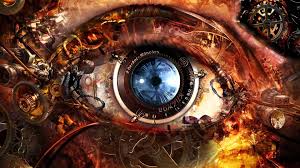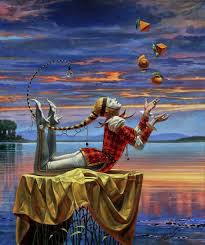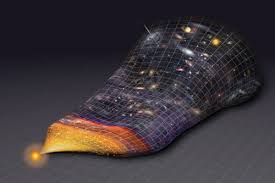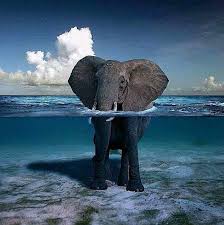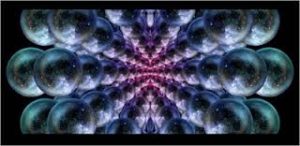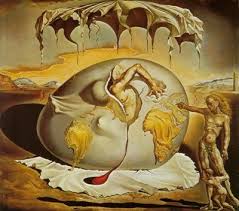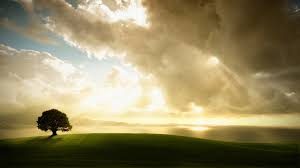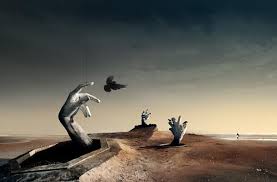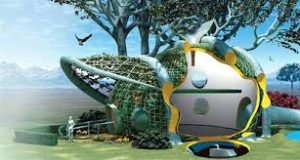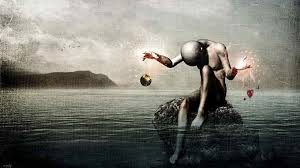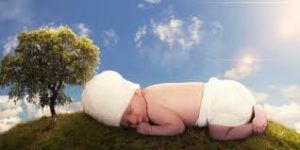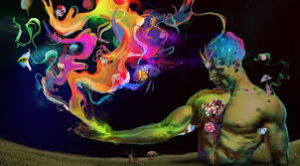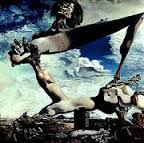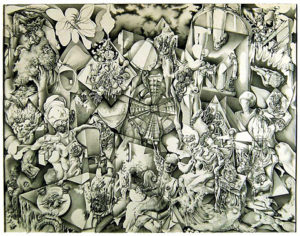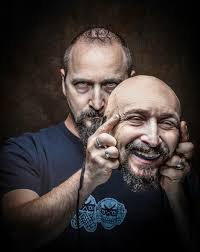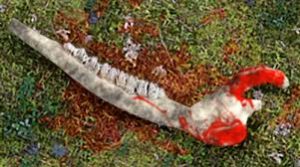Many if the ideas in my blogs will be accepted by scientists most dubiously, though some, of course, will grasp what I will be saying. It is of course very difficult for the deepest truths cannot be physically proven. Science is used to asking quite specific questions, and it usually comes up with very specific answers — even if those answers are wrong.
“Wrong” answers can fit together, however, to present a perfect picture, an excellent construct of its own — and why not? For any answers that do not fit the construct are simply thrown away and never appear. So in a fashion we are dealing with what science has thrown away. The picture we will end up presenting, will certainly not fit that of established science.
However, if objective proof of that nature is considered the priority for facts, then as we know science cannot prove its version of the universe’s origin either. It only sets up an hypothesis, which collects about it all data that agree, and again ignores what does not fit. Moreover, science’s thesis meets with no answering affirmation in the human heart — and in fact arouses the deepest antipathy, for in his or her heart man or woman well knows his/her own worth, and realizes that his/her own consciousness is no accident. The psyche, then, possesses within itself an inner affirmation, an affirmation that keeps man from being completely blinded by his/her own mental edifices.
There is furthermore a deep, subjective, immaculately knowledgeable standard within man’s or woman’s consciousness by which he/she ultimately judges all of the theories and the beliefs of his/her time, and even if his/her intellect is momentarily swamped by ignoble doctrines, still that point of integrity knows. That is the portion of him/her, of course, that is born and grows to maturity even while the lungs or digestive processes do not read learned treatises on the body’s “machinery,” so in my blog we will hope to arouse within the reader, of whatever persuasion, a kind of subjective evidence, a resonance between ideas and being. Many people comment, saying that they feel as if somehow they have always been acquainted with our material — and of course they have, for it represents the inner knowing within each individual. In a fashion, creative play is our human version of far greater characteristics from which our universe itself was formed. There are all kinds of definite, even specific, subjective evidence for the nature of our own reality — evidence that is readily apparent once we really begin to look for it, particularly by comparing the world of our dreams with our daily life.
In other words, subjective play is the basis for all creativity, of course — but far more, it is responsible for the great inner play of subjective and objective reality.
With all due respect, psychologists, with the best of intentions, are barking up the wrong psychological tree. He/she are very enthusiastic about his or her value tests, and his or her enthusiasm is what is important. The nature of the subjective mind, however, will never open itself to such tests, which represent, more than anything else, a kind of mechanical psychology, as if we could break down human values to a kind of logical alphabet of psychic atoms and molecules. A good try, but representative of psychology’s best attempt to make sense of a poor hypothesis.
We may do what we wish ourselves (about taking the tests), of course, but our main purpose is to drive beyond psychology’s boundaries, and not play pussyfoot among the current psychological lilies of the field.
Our body’s are responding, so let us remember that creativity is playful, and that it always surfaces when we allow our mind to drop its worries.
Whenever a blog is translated, it is almost impossible, of course, to say the same thing in the same way. My blog will always be expressed through those invisible national characteristics that are so intimately involved with language — and obviously, were that not so, no blog could be understood by someone of a foreign language. There are bound to be distortions, but the distortions themselves are meaningful.
Now, a number of the world’s leading scientists in the physical disciplines have publicly stated their beliefs that basically consciousness plays the primary role in our world and/or universe. For reasons too complicated to go into here, this attitude prevails even with some mathematicians who seek to penetrate to the core of our reality as they understand it.
However, for every scientist bold enough to think this way, there are scores of others who vehemently disagree. For most scientific materialists only physical matter is real. For them consciousness is nothing more than an epiphenomenon, the passive by-product of the brain’s physiology and chemical events. They believe that physical death is the end of everything, that ultimately all if pointless. They derisively call their rebellious colleagues “animists” — those who believe that all life forms and natural phenomena have a spiritual origin independent of physical matter. (Such heretics are called “Vitalists,” a term related to animism, and one which also has a long history of scientific contempt behind it.)
What can the materialistic scientists use other than mind — or consciousness, that poor epiphenomenon — to study and dissect matter? (Not to mention that innumerable experiments have proven that “physical matter” isn’t solid or objective at all, but “only” energy!) We have, then, the paradox of mind denying its own reality, let alone its importance. As far as we know, human beings are the only creatures on earth who would seriously engage in such learned futile behavior. It’s also very ironic, I think, that the materialists spend years acquiring their eclipsed education and prestige, both of which they then use to inform us of the ultimate futility of all of our endeavors (including their own, or course). But for the materialists, the mind-brain duality isn’t scientific in the orthodox sense. It isn’t falsifiable; that is, it cannot be stated under what precise conditions the mind-brain duality could be proven false. To which, understandably enough, those scientists who do accept the reality of mind reply that neither can the idea be falsified that only what is “physical” is real.
I think is most risky at this stage in history for anyone — scientist or not — to dogmatically state that life has no meaning, of is a farce, or that attributes of our reality of which we can only mentally conceive at this time do not really exist. Discoveries in the “future” are quite apt to prove such limited viewpoints wrong. The history of science itself contains many examples of theories and “facts” gone awry. Moreover, why would our species want to depend upon as fragile a conception as epiphenomenalism through which to comprehend our reality? Or better yet, why does it in large part? Truly, our individual and collective ignorance of just our own probable reality is most profound at this time in our linear history (in those terms). I would be surprised is ultimately, as a result of mankind’s or womankind’s restless search for meaning, we didn’t end up returning in a new official way to our ancient concepts of spirit within everything, animate and inanimate. Such an updated animistic/vitalistic view would take into account discoveries ranging from sub-nuclear events to the largest imaginable astronomical processes in our observable universe. Human beings do know their own worth.
There is no doubt that we need to believe that life has meaning. That belief may well be biological imperative. If we were as science maintains — only creatures formed by elements combining mindlessly in a universe itself created by chance, surrounded everywhere by chaos — then how could we even conceive of the idea of meaning or order?
Science would say that the idea of meaning itself is simply a reflection of the state of the brain, as is the illusion of our consciousness. But a science that disregards consciousness must necessarily end up creating its own illusion. It ignores the reality of experience, the evidence of being, and in so doing it denies rather than reinforces life’s values.










